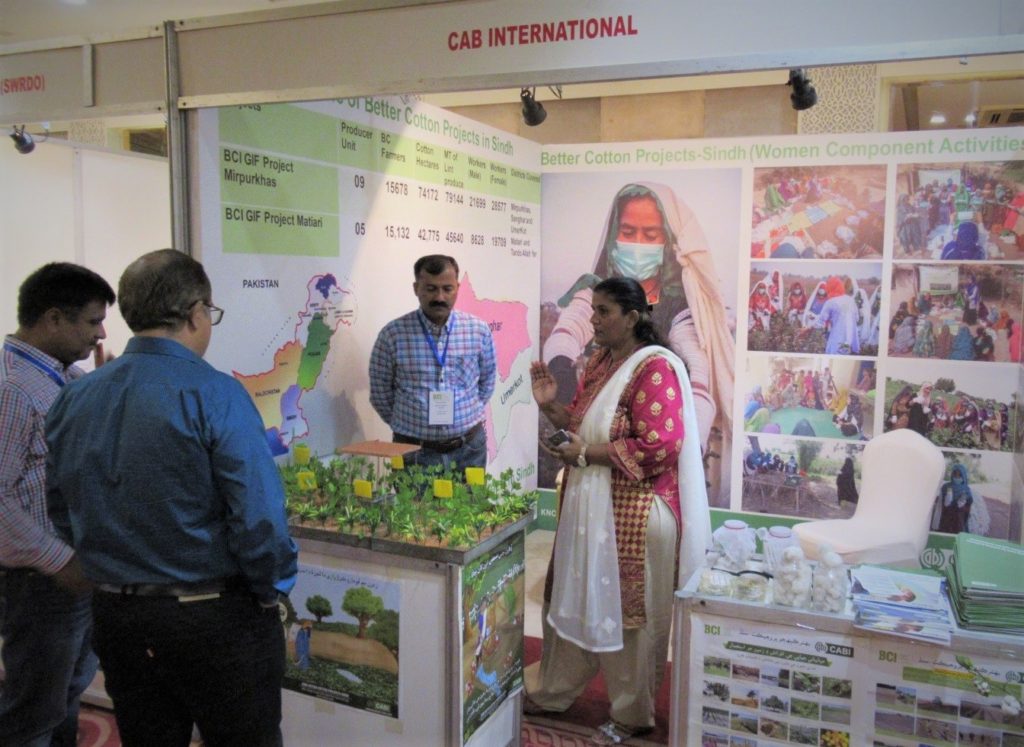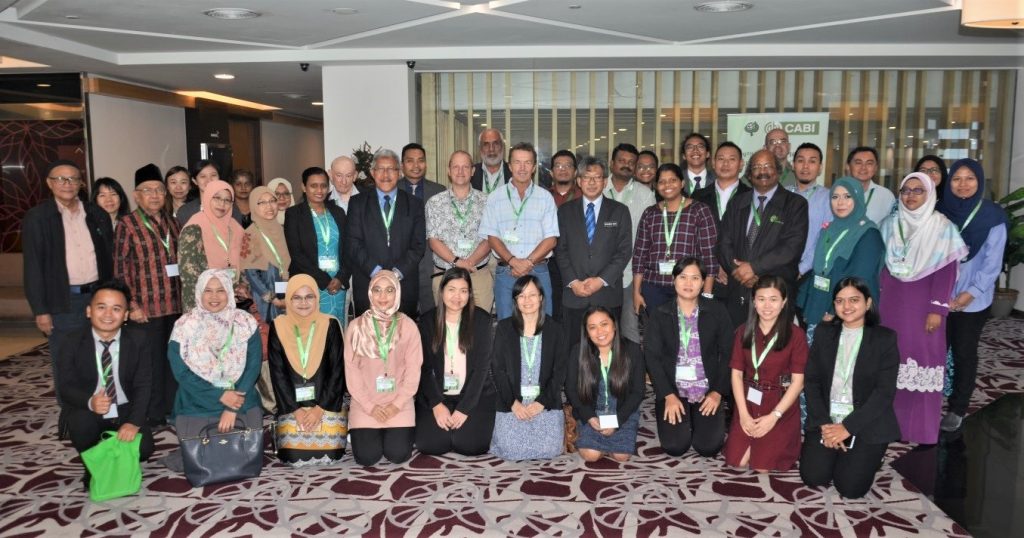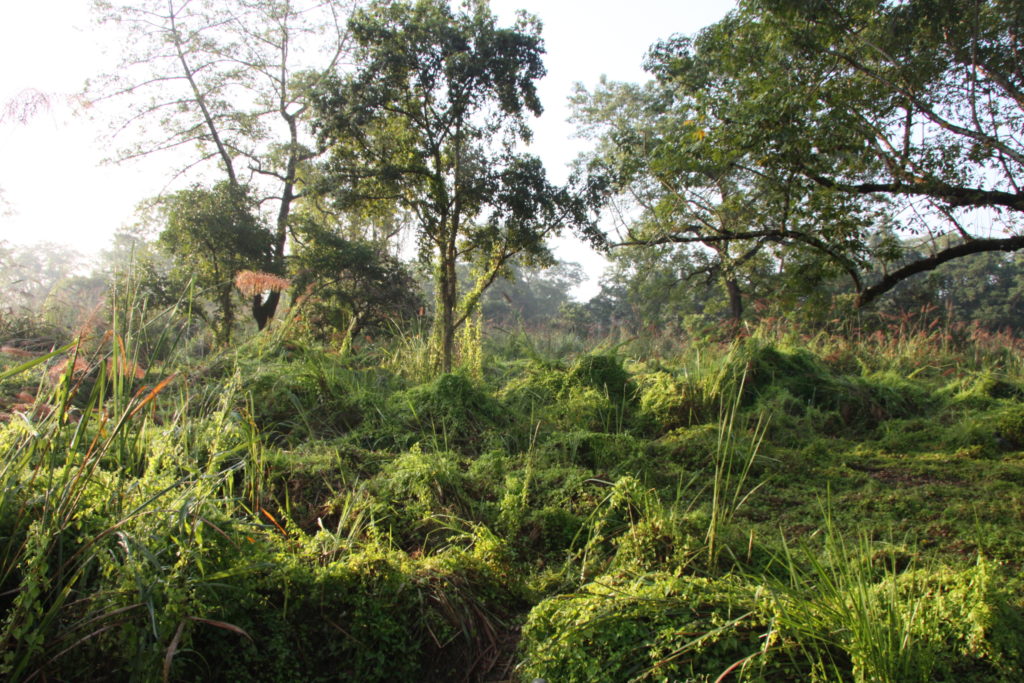Halloween blog special
Did you know that in many countries around the world pumpkins are a beloved staple food – not just in the Autumn/Fall and during Halloween but all year round? Yet, this humble cultivar of a squash plant, like any other food, is susceptible to a range of pesky pests – from the Pumpkin Beetle to…
Cotton farmer reveals the benefits of sustainable pest management strategies in Pakistan
A cotton farmer from Pakistan has revealed how support from CABI, as part of the Better Cotton Initiative (BCI), is helping her implement more sustainable pest management strategies to protect her crops and produce higher and more profitable yields.
Scientists release new allies in the battle against invasive yellow toadflax in the Rocky Mountains
A team of international scientists are collaborating to fight the noxious weed yellow toadflax (Linaria vulgaris) in Montana’s world-famous Rocky Mountains with the help of a tiny insect – the shoot-galling weevil Rhinusa pilosa. Yellow toadflax, first introduced from Wales in the late 1600s as an ornamental and medicinal plant and to make textile dyes,…
Photo focus on fighting invasive plants on Socotra Natural World Heritage site
In this photo special we turn the spotlight on members of the community in the Socotra Archipelago, Yemen – including Bushera Ahmed Abdulla pictured above – who are working together with invasive species experts from CABI to help rid the region of devastating Invasive Alien Species (IAS) including common pest pear Opuntia stricta and prosopis. Dr Arne Witt, CABI’s…
IOBC workshop focuses on the latest research in the biological control of invasive weeds
By Chan Hong Twu, scientist at CABI Southeast Asia in Selangor, Malaysia CABI Southeast Asia was proud to host the 9th International Workshop on Biological Control and Management of Eupatorieae and other Invasive Weeds where the very latest research on invasive weeds and their biological control agents were shared amongst delegates from 13 countries including…
Taking action on invasives and youth unemployment in Zambia
Youth unemployment is a significant economic and social burden for Zambia. So too is the impact of invasive species on agricultural production and the natural environment. Are these mutually exclusive challenges, or can youth unemployment and tackling agricultural challenges, such as invasive species, be effectively positioned together to deliver jobs, food security and sustainable agriculture?…
The impact of invasive species on human health
By Giuseppe Mazza and Elena Tricarico, Università degli Studi di Firenze, Italy Invasive species are becoming a popular topic in newspapers: when articles appear, they mainly report the damages invasive species can cause to our ecosystems (e.g. reduction or disappearance of native species as well as habitat modification) or to our economic activities: fishing or…
Invasive species: the threat to human health
The damage that invasive species can cause to the environment and the economy are well known, but impacts on human health have been much less analysed. However, invasive species can cause impacts ranging from psychological effects, phobias, discomfort and nuisance to allergies, poisoning, bites, disease and even death. Invasives experts Giuseppe Mazza and Elena Tricarico…








